In the podcast, Jennifer and I have a conversation about something awful that happened to us last week, and how sharing that awful story on social media resulted in something wonderful.
While out for a walk with our dog Oswald, I came across several mice stuck on glue traps who had been dumped in a bag on the side of the road. Over two days, I would find a total of five mice. Two were dead, one was crying but had been sandwiched between two traps and had been partially stepped on, and he died shortly afterward. But two were still squirming trying to get off, looking up at me. They were covered with poop and flies. I called Jennifer to come pick us up in the car.
This is the story of what happened next: how we painstakingly got the mice off the glue traps and nursed them back to health then released them safely back into the wild.
It is also the larger story of how we were able to gently and humanely evict rodents who moved into our attic and crawl space without anyone losing their lives and how you can, too.
And, it is the story of how the experiences of last week almost broke our hearts and spirits, only to have millions of people redeem our faith in humanity.
While walking with Oswald, my dog, I came across mice stuck on glue traps, tossed out of a car in a bag on the side of the road. They were covered with poop and flies were buzzing around. They were still squirming trying to get off, looking up at me.
I called my wife to come pick us up in the car and for the next hour and a half, we used cooking oil and cornstarch to get them off the glue (and to get the glue off of them) without tearing skin or worse. They shrieked as they struggled and were severely dehydrated. They drank the water I offered them in a little bowl, even while still stuck to the trap.
The whole thing was heart-wrenching. But slowly and carefully, we got them both off and then just as carefully, got the glue off of them. By that evening, they were eating and sleeping next to each other. In the morning, they are more alert, though scared.
What kind of person would do this? Who would then just leave them on the street to slowly die? I’m hardly naive and realize that a lot of people — maybe even most — do not aspire to represent the best of humanity, do not extend their circle of compassion very far, and do not look at mice as having moral worth, but why would anyone embrace such barbaric cruelty? Such callous indifference to suffering?
When people ask why I do not lose hope at how incivil people can be to animals, I always talk about the progress we’ve made in so many different areas, that people can surprise you, and remind them we have to take the long view. Sure we have a long way to go, but, as a society, we have already come so far. But days like this admittedly knock me down.
The next morning, I got back up as we all must.
Not only did we make a difference for two of our fellow earthlings, but we posted to Next Door and gently asked our neighbors to embrace a kinder and more inclusive world view. And we will hope that they have the ethical maturity to accept the message. At the very least, perhaps they will learn that though they might not care, other people do. And by learning that they do, maybe we will have planted a seed that will someday flower.
They were released with a little makeshift home, a week's supply of food, and far away from humans and glue traps. Godspeed little ones...




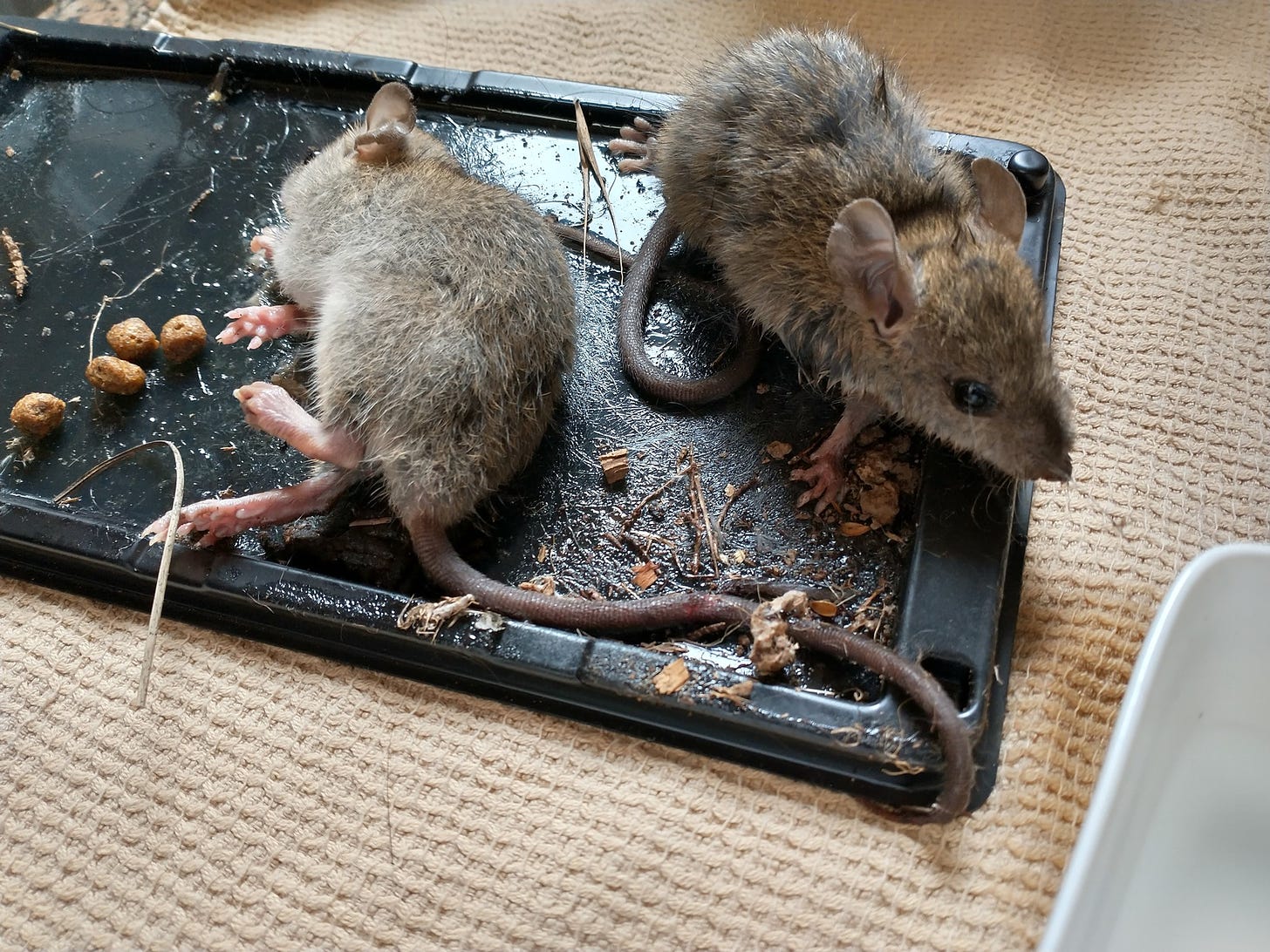
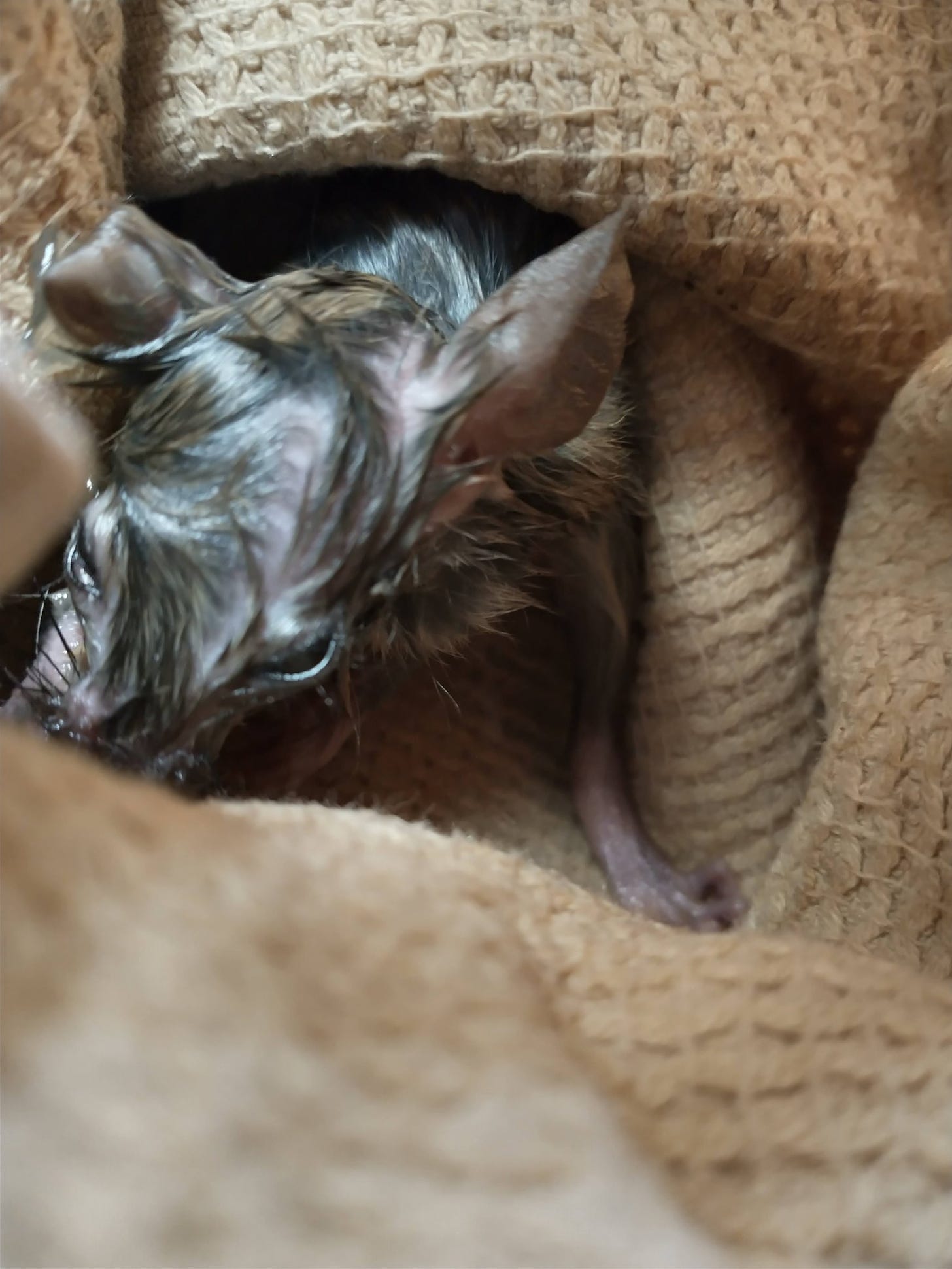
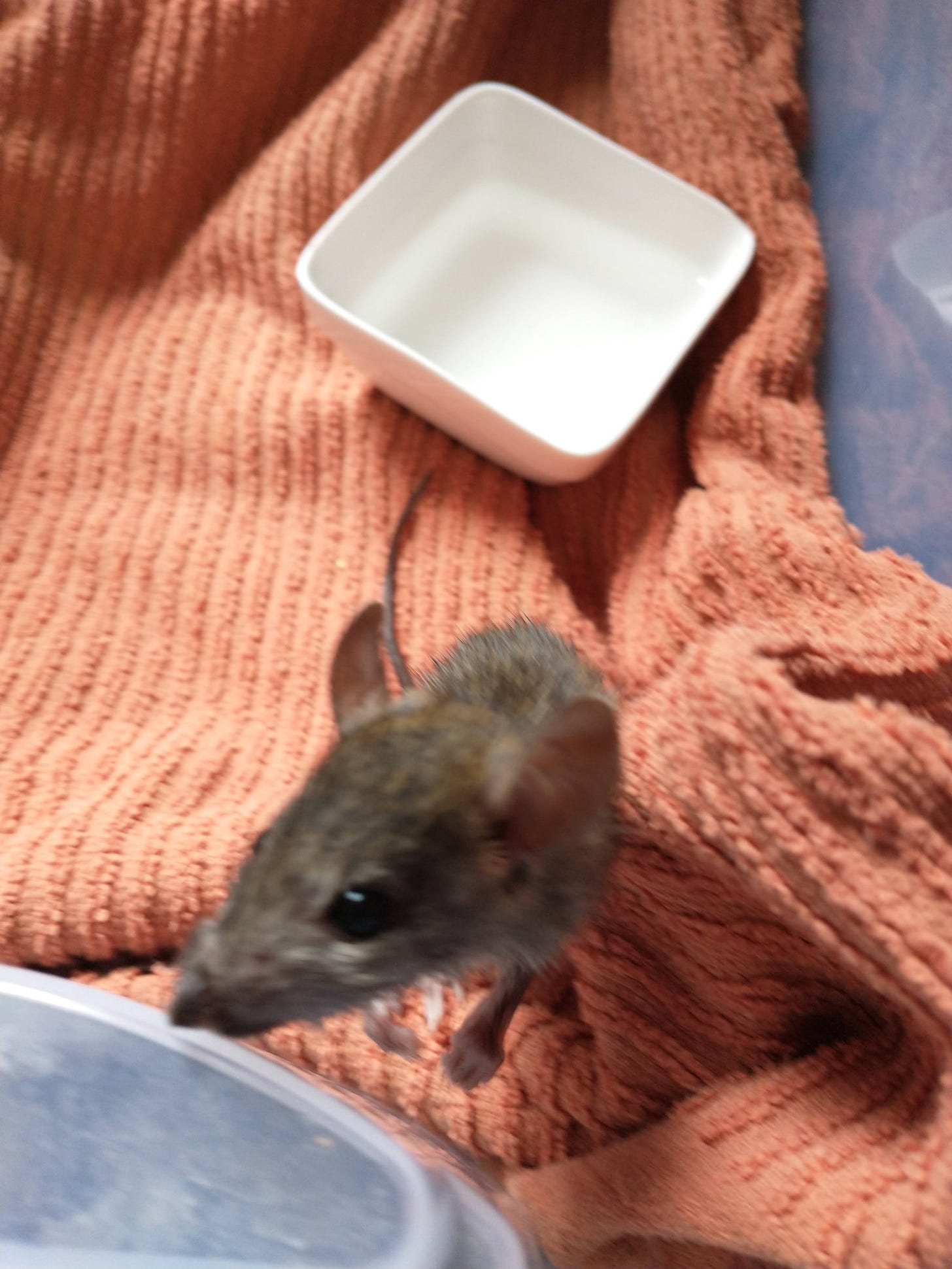

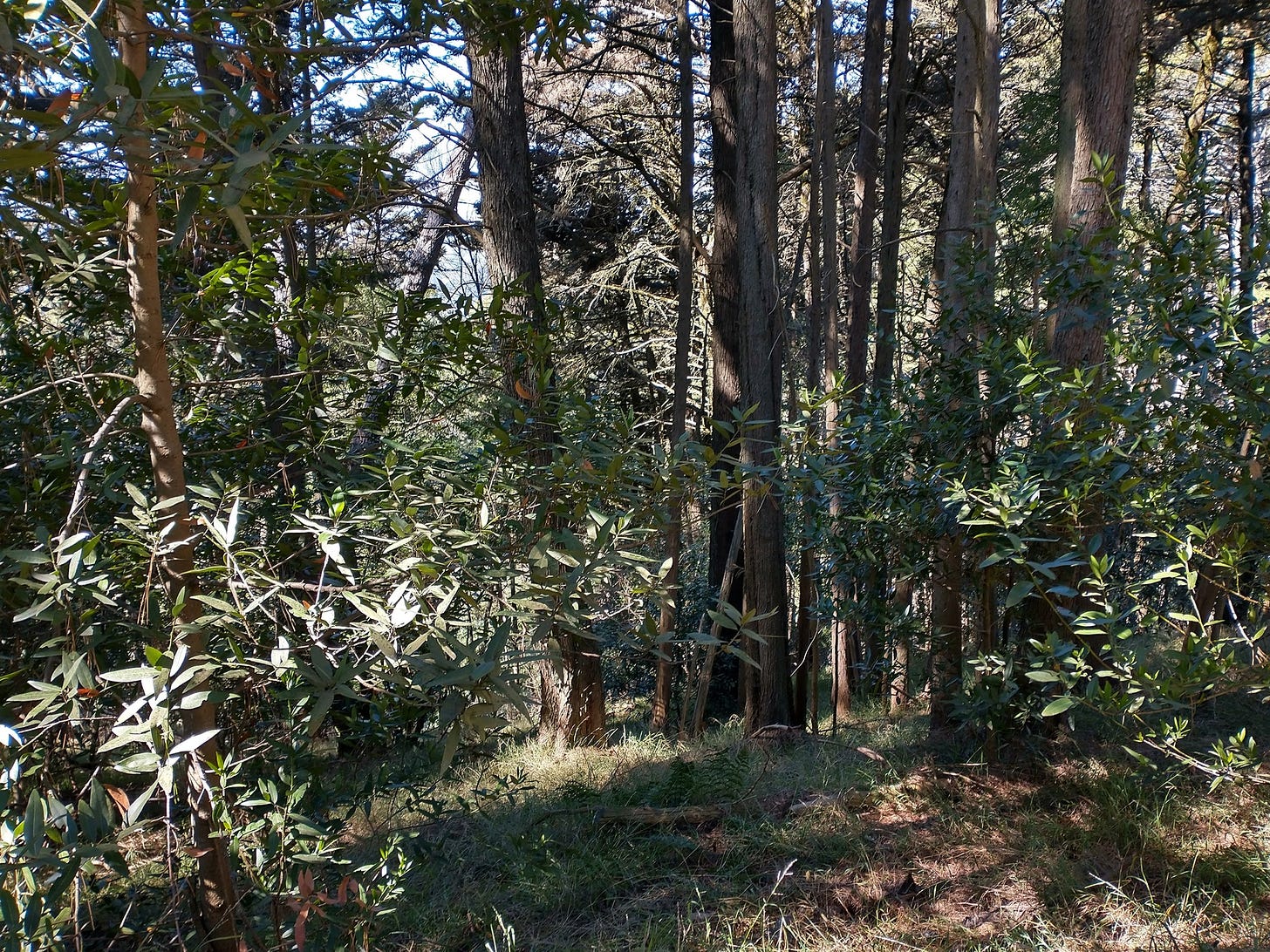



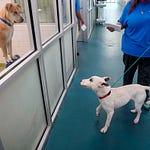

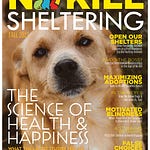
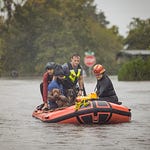

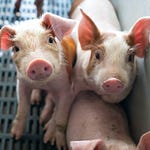

Of Mice and Men